Английский язык для специальных и академических целей: Международные отношения и зарубежное регионоведение. Часть 1 - [71]
Critics of the royal finances have no real case. Last year, Norman Baker, the Liberal Democrat MP, claimed: “If the Royal family are convinced they are offering value for money, they should subject themselves to the Freedom of Information Act like every other part of the public sector. Until there is that level of transparency, any rise should be resisted.” Clearly, he was heedless of Walter Bage-hot's maxim regarding the monarchy: “We must not let daylight in upon the magic.”
In any case, daylight is flooding in: from 2012, the Civil List will be audited by the National Audit Office, which will lay its findings before Parliament to be scrutinised if it wishes.
The monarchy costs 69p a year for every person in Britain, or £1.33 per taxpayer. In return, besides the Crown Estate profits, there is the unquantifiable, but enormous, tourist revenue it generates. Claims that a republican head of state would be less costly are absurd. The German presidency costs about the same as the Queen, but how many tourists line the streets of Berlin to catch a glimpse of — er — what is his name?
The Reader
In France, Nicolas Sarkozy set an annual budget for his establishment at the Elysee of 110 million euros (£90 million). Last year, the French head of state's expenses were audited for the first time since the reign of Louis XVI; it revealed a flower bill of 275,809 euros and 3,000 euros in fines for late payment of electricity and gas.
Although the monarchy undoubtedly represents value for money, its true worth cannot be expressed in financial terms. It is the personification of the nation, the embodiment of our national identity. The monarchy is living history, a pageant of our past that remains relevant in the present and will continue to do so in the future. Constitutionally, it is the guarantor of stability: during the political impasse that followed the general election and the protracted negotiations, our governmental process did not miss a beat, since the Queen remained as the constitutional authority, ensuring continuity.
She also gives authority a human face. In other countries, how many hospital wards are significantly cheered by the visit of a republican head of state, usually a political retread with partisan baggage? The additional advantage of a royal family, with several members carrying out official duties, is that many more engagements can be accommodated than any single president could ever perform. Bagehot also recognised that a family at the apex of society generated more interest than a solitary individual.
In 2012, the Queen will celebrate her diamond jubilee. As a nation, we shall have much to give thanks for on that occasion. In faithful fulfilment of the promise she made on her accession to the throne, the Queen has served her people with total dedication. May she do so for years to come.
June 9, 2014 http://yugov.co.uk/news/2014/06/09/changing-politics-social-class/
British comedy can tell us a thing or two about social class in modern Britain
As so often, some of the sharpest political insights come not from the sage columnists of our upmarket papers but from comedy writers. They have noticed — and exploited — some of the social class cross-currents that conventional analysis has tended to overlook.
Fifty years ago, things were so much simpler. The working classes voted Labour while the middle classes voted Conservative. In 1967 Peter Pulzer, a distinguished political scientist, wrote: “Class is the basis of British politics. All else is embellishment and detail.” He had good reason to say this. Labour had won the general election a year earlier by winning more than 60% of working class votes. It secured the votes of only one in four middle class voters, who preferred the Tories by more than two-to-one.
Today, Britain's economic and social structure is completely different; and so is the nature of party loyalties. Using the same yardstick as in the 1960s — whether the job of the head of each voter's household is essentially manual (“C2DE”) or non-manual (“ABC1”) — the class gap is far narrower. In YouGov's survey for Prospect of more than 3,000 electors, Labour enjoyed a 1% lead among ABC1 voters, and a 6% lead among C2DE voters — a class gap of five points.
However, these figures fail to tell the full story. Social class may no longer affect votes as powerfully as it used to — but its influence is still far greater than conventional polls suggest.
As well as ascertaining their conventional class position, we asked people whether they regarded themselves as “working class”, “middle class” or “upper class”. It turns out that almost one adult in three gives the “wrong” answer: nine million ABC1 adults consider themselves working class, while five million C2DE adults say they are middle class. (Only 1% called themselves upper class.) As far as I know, no equivalent data exists for the Fifties or Sixties, but it is hard to believe that the equivalent cross-over figures would have been anything like as high.
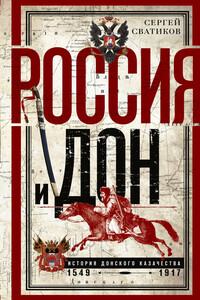
Предлагаем вашему вниманию адаптированную на современный язык уникальную монографию российского историка Сергея Григорьевича Сватикова. Книга посвящена донскому казачеству и является интересным исследованием гражданской и социально-политической истории Дона. В работе было использовано издание 1924 года, выпущенное Донской Исторической комиссией. Сватиков изучил колоссальное количество монографий, общих трудов, статей и различных материалов, которые до него в отношении Дона не были проработаны. История казачества представляет громадный интерес как ценный опыт разрешения самим народом вековых задач построения жизни на началах свободы и равенства.
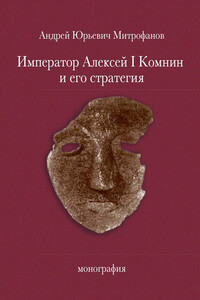
Монография доктора исторических наук Андрея Юрьевича Митрофанова рассматривает военно-политическую обстановку, сложившуюся вокруг византийской империи накануне захвата власти Алексеем Комнином в 1081 году, и исследует основные военные кампании этого императора, тактику и вооружение его армии. выводы относительно характера военно-политической стратегии Алексея Комнина автор делает, опираясь на известный памятник византийской исторической литературы – «Алексиаду» Анны Комниной, а также «Анналы» Иоанна Зонары, «Стратегикон» Катакалона Кекавмена, латинские и сельджукские исторические сочинения. В работе приводятся новые доказательства монгольского происхождения династии великих Сельджукидов и новые аргументы в пользу радикального изменения тактики варяжской гвардии в эпоху Алексея Комнина, рассматриваются процессы вестернизации византийской армии накануне Первого Крестового похода.
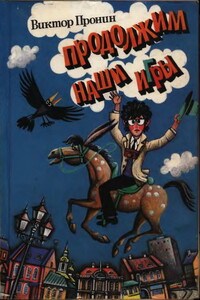
Виктор Пронин пишет о героях, которые решают острые нравственные проблемы. В конфликтных ситуациях им приходится делать выбор между добром и злом, отстаивать свои убеждения или изменять им — тогда человек неизбежно теряет многое.
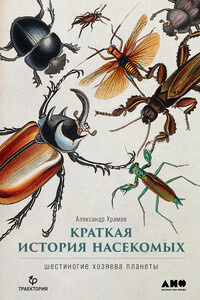
«Любая история, в том числе история развития жизни на Земле, – это замысловатое переплетение причин и следствий. Убери что-то одно, и все остальное изменится до неузнаваемости» – с этих слов и знаменитого примера с бабочкой из рассказа Рэя Брэдбери палеоэнтомолог Александр Храмов начинает свой удивительный рассказ о шестиногих хозяевах планеты. Мы отмахиваемся от мух и комаров, сражаемся с тараканами, обходим стороной муравейники, что уж говорить о вшах! Только не будь вшей, человек остался бы волосатым, как шимпанзе.
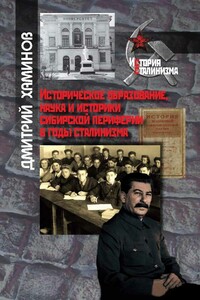
Настоящая монография посвящена изучению системы исторического образования и исторической науки в рамках сибирского научно-образовательного комплекса второй половины 1920-х – первой половины 1950-х гг. Период сталинизма в истории нашей страны характеризуется определенной дихотомией. С одной стороны, это время диктатуры коммунистической партии во всех сферах жизни советского общества, политических репрессий и идеологических кампаний. С другой стороны, именно в эти годы были заложены базовые институциональные основы развития исторического образования, исторической науки, принципов взаимоотношения исторического сообщества с государством, которые определили это развитие на десятилетия вперед, в том числе сохранившись во многих чертах и до сегодняшнего времени.
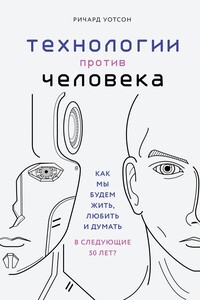
Эксперты пророчат, что следующие 50 лет будут определяться взаимоотношениями людей и технологий. Грядущие изобретения, несомненно, изменят нашу жизнь, вопрос состоит в том, до какой степени? Чего мы ждем от новых технологий и что хотим получить с их помощью? Как они изменят сферу медиа, экономику, здравоохранение, образование и нашу повседневную жизнь в целом? Ричард Уотсон призывает задуматься о современном обществе и представить, какой мир мы хотим создать в будущем. Он доступно и интересно исследует возможное влияние технологий на все сферы нашей жизни.